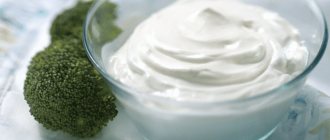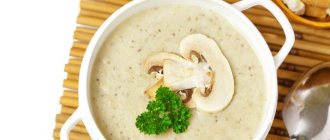With the advent of the baby, the restrictions that existed during pregnancy did not disappear, they even became stricter. Milk is the main source of nutrition for infants. Everything that the mother consumes is received by the baby. A balanced, proper diet is the basis for a newborn’s health. The list of foods that a mother can consume is limited, especially in the first months, when the baby’s digestive system is not fully developed. Vegetables and fruits are important, they are rich in minerals, vitamin complex, and fiber. Is it allowed to eat pepper while breastfeeding and how to properly introduce it into the menu?
Can bell peppers be consumed by nursing mothers?
Pepper is one of the important vegetables that must be consumed during breastfeeding, due to the large amount of vitamins and microelements. The vegetable has an average level of allergenicity, which allows it to be included in the menu when feeding. The main thing is to follow the rules for introducing it into the diet of a nursing mother.
Red bell pepper
A red vegetable is introduced into the diet when the mother consistently eats green and yellow fruits. Pepper of this pigmentation is the most allergenic. It is worth knowing that the concentration of vitamin A in red fruits is higher than in green ones. In addition, it contains a large number of compounds (compared to green and yellow peppers) that have anti-inflammatory effects.
Yellow
Yellow, like red, is allowed to be consumed if the newborn does not have a reaction to green or white fruits.

Green vegetable
Green and white vegetables are recognized as the safest. But it is worth remembering that after heat treatment it has a pronounced bitter taste.
Stuffed peppers: is it possible or not?

We all love to eat bell peppers not only raw, but also to prepare a variety of tasty and healthy dishes from them. It can be added to soup, stewed, or stuffed with various fillings. Stuffed peppers can be introduced into the diet of a nursing woman if several important conditions are met.
- The filling should be either vegetables or fresh meat.
- The meat filling should be prepared from turkey or rabbit meat.
- Another meat allowed for mother and child during lactation is lean beef.
You can prepare stuffed peppers in different ways. An option with vegetables, meat and walnuts is possible, if it does not cause allergic reactions in either mother or baby. You can experiment by combining meat with vegetables or meat and rice.
It is better to cook stuffed sweet peppers for a nursing mother in the oven, as this is the most beneficial for both the woman and the baby.
How to choose?
There is no point in arguing that this vegetable is healthy. But the question of making the right choice remains important. What to look for when purchasing:
- Place of growth. You need to choose a vegetable grown in your region. The quality of imported fruits remains in doubt. Buy only seasonal products, since the fruits actively absorb pesticides.
- If the feeding period falls in the winter, it is recommended to use prepared frozen vegetables.
- The fruit must be intact, without cracks, punctures or other surface damage. Pepper is a perishable product, so pathogenic microbes penetrate into it through damage.
- It must be without signs of deterioration.
- Green fruits have less sweetness, and after heat treatment they become bitter.
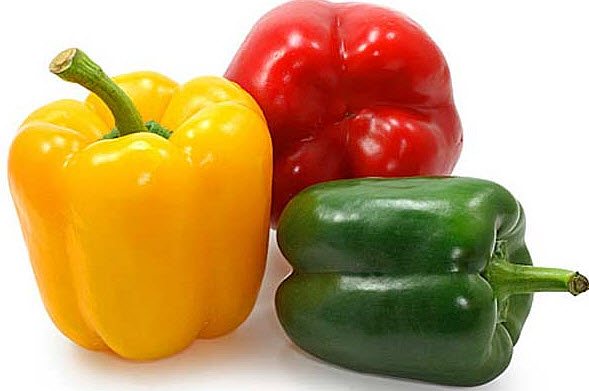
Sweet red bell pepper during breastfeeding
It is known that fresh homemade vegetables and fruits form the basis of the menu for the proper nutrition of any person.
But not all of them are safe during a special period; for example, red bell peppers often raise questions during breastfeeding. Can women especially eat it while breastfeeding, and does it have any benefits?
Can a nursing mother eat red bell peppers and what are their benefits?
Bell pepper is a frequent guest on our tables. Salads are prepared with this wonderful vegetable, main courses are served with it, and twists are made with it. Therefore, it is not surprising that it is so popular, including among nursing mothers.
However, many women are confused by the fact that most of the year sweet peppers are brought from afar. In our latitudes, its season does not last long. In addition, the bright color of vegetables and fruits usually indicates high allergenicity. Is this really true?
In fact, pediatricians are extremely loyal to bell pepper - it is even included in the category of recommended products. However, this applies only to seasonal vegetables, and not to imported products.
It should also be noted that specifically red bell peppers still often become the cause of a negative reaction in the baby. For this reason, its introduction into the diet of a nursing mother is carried out after the introduction of the white and orange varieties of the vegetable.
However, red sweet pepper has undoubted advantages - the concentration of nutrients in it is several times higher than in other similar vegetables. For example, it contains 5 times more vitamin A than white pepper.
This vegetable has a lot of other beneficial properties, let's look at them in more detail.
- In terms of carotene content, bell peppers are similar to carrots. Thanks to this substance, the vegetable has a beneficial effect on eye health. Pepper can increase visual acuity and also prevent the development of many eye diseases.
- It is also extremely important that sweet peppers contain a significant amount of vitamin C. This substance is an antioxidant, which means it prevents such a terrible disease as cancer. Vitamin C is also known for its ability to strengthen the immune system. Thanks to this, the body of mother and baby better resists any diseases and recovers faster from them.
- Bell peppers contain such an amazing substance as folic acid. This compound ensures the active development of the child and strengthens the health of his nervous system.
Mothers who are trying to lose excess weight after pregnancy should pay attention to this vegetable. Pepper contains slow carbohydrates that take a long time to be digested by the body and are not stored as fat.
- Niacin, also present in the flesh of bell peppers, is a B vitamin that helps with digestive health. Considering that this vegetable is also rich in fiber, its regular consumption can significantly affect the quality of digestion in general. Sweet peppers bring particular benefits to the intestines - they function better, and their walls absorb nutrients better.
- A distinctive feature of red bell pepper is the presence of anti-inflammatory substances in it. Such compounds are not found in white vegetables, so eating the red variety is much preferable.
- The phosphorus in red peppers helps normalize blood circulation. Thanks to this trace element, blood vessels throughout the body relax and blood flow improves. Indirectly, this helps milk production and improves the quality of lactation in general.
Possible harm from eating bell pepper during breastfeeding
Do not forget that when breastfeeding, any product, even the healthiest one, can pose a potential danger to both the baby and the nursing mother herself.
https://www.youtube.com/watch?v=FRaUmu2AlZY
That is why it is important to know about the possible side effects of a particular food in order to respond in time to the symptoms that appear.
- One of the most common side effects from bell peppers is allergies. It can also manifest itself in the mother, but most often this reaction manifests itself in the child. It is important to note again that the red variety of the vegetable is a little more likely to cause it - the allergy is caused by the substance responsible for the color of the pepper. Symptoms include breathing problems, watery eyes, red spots on the skin and changes in stool consistency.
- A child may also experience a non-allergenic negative reaction to pepper. A number of substances from the vegetable enter the milk and irritate the baby’s digestive system, as a result he suffers from colic, diarrhea appears, and the child himself becomes irritable and nervous.
- The abundance of fiber in pepper makes it potentially dangerous for those nursing mothers who suffer from ulcers and other diseases of the gastrointestinal tract. When digested, the vegetable injures the mucous membranes and can lead to aggravation of the disease.
- Imported vegetables can cause considerable harm to health - they are sprayed with a special composition for transportation. The substances contained in it, when in contact with humans, cause digestive problems, and the child is in the greatest danger here.
When and in what quantity can a nursing mother try bell pepper?
Since bell peppers do not contain any substances that make them spicy, nursing mothers are allowed to eat them quite early. White bell peppers are allowed to be tasted when the child reaches three months of age .
The red variety is introduced a little later - after a couple of weeks and only if the baby did not have an allergy the first time.
Pediatricians advise consuming no more than 100 grams of the product per day, and you can eat red pepper no more than 3-4 times a week.
The procedure for introducing this vegetable is standard. To begin with, a nursing mother can eat one small piece of pulp. It is better to do this in the first half of the day before feeding, so that you can immediately notice the baby’s negative reaction.
If its main symptoms do not appear within 24 hours, then the child’s body reacts normally to this vegetable and the pepper can be eaten without fear. Otherwise, the introduction of bell pepper is postponed for a month and the attempt is repeated.
Tips for choosing and consuming red bell peppers during lactation
- Buy peppers only in season - imported vegetables are more likely to harm your health than bring any benefit.
- When choosing vegetables, pay attention to their surface - it is better not to take fruits with broken places.
- For early entry, it would be correct to stew red sweet peppers. In this form, vegetables are better absorbed and the risk of digestive problems is minimal.
- In cold weather, a nursing mother can treat herself to vegetable lecho. Of course, only if it is not spicy.
- Bell peppers go best with fresh vegetables - prepare a vitamin salad with it that will fully satisfy the body's need for nutrients.
- If you like something more nutritious, make stuffed peppers with chicken and rice. This dish will fit perfectly into the standard menu of a nursing mother and complement it.
Despite its bright color, red bell pepper can be consumed by a young mother while breastfeeding. This vegetable combines a lot of useful properties and at the same time has an amazing taste.
Source: https://parents-news.ru/materinstvo/krasnyj-bolgarskij-perets-pri-grudnom-vskarmlivanii.html
When is it recommended and how to properly include it in the diet?
In the first month after childbirth, the range of food items is strictly limited. Vegetables are introduced into the diet when the baby turns three months old. Some mothers begin to use at 2 months of age, but only if they are confident that they are not prone to allergies. At first, it is recommended to eat fruits that have undergone heat treatment: stewed or boiled.
Pepper, like other new products, is introduced into the diet according to the general rules:
- The first portion should be minimal, about 20 g, boiled or stewed.
- It is recommended to eat it in the first half of the day, not on an empty stomach.
- During this and the next 2 days, observe the baby’s reaction.
- If negative reactions appear in the form of colic, intestinal upset, skin rashes, the use of pepper should be postponed. The next test is not earlier than 3 weeks.
- If there is no negative reaction, the dosage can be gradually increased.
- After 2-3 weeks, try fresh pepper, following the general rules.

What a young mother should remember when including bell peppers in her diet
There are no plants in nature that are not allergens.
The only question is that some vegetables and fruits have greater allergic activity, while others have less effect on the body of a nursing woman and her baby. Bell or sweet peppers are among foods with an average likelihood of allergic reactions, so when introducing this vegetable into your diet, a young mother should adhere to a few simple rules:
- like most fresh vegetables and fruits, it is not recommended to eat this plant until the baby is 3-4 months old;
- Taking into account the poor environment and the increased sensitivity of most children to allergies, it is better to postpone experiments with new products until 6-7 months of the child’s life;
- you should start with yellow vegetables, since the rule of increased allergic activity of red and orange plants applies to bell pepper in full;
- For variety, green pepper is also suitable for a woman to eat while breastfeeding, since it also provokes allergies quite rarely;
- You should not start eating the vegetable outside of its ripening period, since long-term storage of the product, even under ideal conditions, reduces its vitamin value and increases the risk of allergic reactions.
- When including a vegetable in the diet, it must be subjected to heat treatment during the first month. Peppers are usually stewed or processed in a slow cooker. If no pathological reactions occur in the baby for 2 - 3 weeks, you can try dishes made from raw pepper.
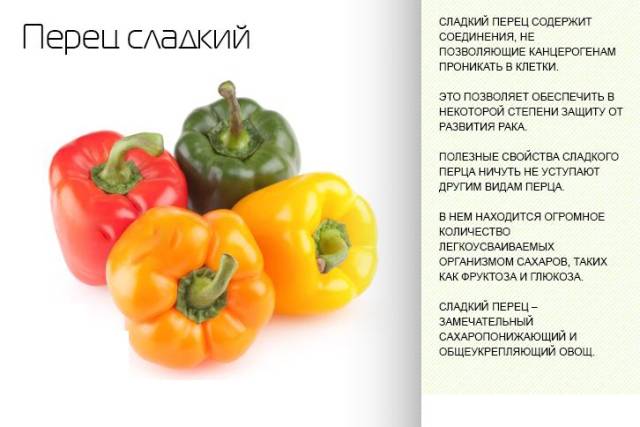
And, finally, about the amount of product in the daily diet of a nursing mother. If the introduction of this vegetable into the daily diet goes without complications, a woman can eat about 30 - 50 grams per day, but no more than 300 grams of pepper per week. This only applies to cooked vegetables. In its raw form, a serving should not exceed 150 grams of pepper per week.
By following these tips, a woman will be able to diversify her menu throughout the lactation period. However, not all young mothers can afford this plant.
What are the benefits for breastfeeding?
Research has shown that the vegetable contains almost half of the periodic table. Eating fruits has a positive effect on the condition of mother and baby due to the large amount of vitamins, micro- and macroelements, and organic acids it contains.
Benefits of the vegetable:
- The concentration of carotene in it is equal to the amount contained in carrots. Carotene has a beneficial effect on the condition of the eyes and the quality of vision.
- Contains a huge amount of vitamin C, which is an antioxidant. Helps strengthen the immune system and prevent cancer.
- Folic acid helps strengthen the nervous system, which is necessary for the mother in the postpartum period.
- It is a low-calorie product and contains slow carbohydrates, which is extremely important for those who want to quickly regain their figure.
- The high content of fiber and niacin found in the pulp helps improve the functioning of the digestive system, intestinal function, and prevents constipation, which often affects women in the postpartum period.
- The presence of phosphorus helps improve the circulatory system and restores blood circulation.

Can it be used during breastfeeding?
If there are no contraindications, mother should eat as many vegetables and fruits as possible. Almost all boiled vegetables will be healthy. I consider bell pepper one of these vegetables.
It is very important to use it for complementary feeding
This product contains vitamin C and rutin. These vitamins can influence the strengthening of blood vessels and the blood system. Especially necessary if you have diseases such as:
- anemia;
- diabetes;
- and even depression.
Given these positive aspects, you should still be extremely careful when using pepper in your diet. After all, this product is considered capable of causing allergies, as well as problems with the gastrointestinal tract.
Since what month?
The best time to include pepper in your diet is 3-4 months after the baby is born. This is the optimal time to introduce this type of food. But this period depends on the individual characteristics of the mother and baby.
Permitted product varieties
It is best to choose bell peppers grown in your area. Imported vegetables may not always be of high quality
When choosing peppers, you also need to pay attention to the color. To start, choose green, yellow
And only then start introducing red and orange.
It is these colors of bell pepper that can cause allergies. Do not use hot red pepper or paprika in cooking. A small amount of ground white or black pepper is optimal. But it must be used as late as possible, because the quality and taste of breast milk depends on it.
Raw or cooked?
You should not use raw pepper when breastfeeding. It is better to eat it boiled or stewed. Roasted peppers are also great. A good solution would be to prepare dishes like stuffed peppers. It can be prepared with vegetable or meat filling.
Important! You should try pepper for the first time before lunch, but not on an empty stomach. Carefully monitor your baby's reaction
If there are no negative reactions, rashes or redness, you can safely eat pepper in small doses, gradually increasing. It is important to introduce pepper into the diet during the season, so the vegetable will have a minimum of chemical additives.
How is it useful for breastfeeding women?
Bell pepper is dietary. This is one of those sweet vegetables that can be introduced into the diet of mother and baby from the first months of life. A large number of :
- vitamins A, B, C, E;
- iodine;
- iron;
- magnesium;
- calcium.
Pepper is useful for a young mother because:
- Increases immunity.
- Gives energy and vigor. It even lifts your spirits.
- Strengthens nails, hair and improves skin condition.
- Improves the functioning of the nervous system. Sometimes it serves as a sedative, but is well absorbed and improves metabolism.
- Has a beneficial effect on the state of the blood system. Has a beneficial effect on the functioning of the heart.
Will it harm the baby?
How eating a vegetable can affect a newborn:
- cause allergic reactions;
- disrupt the functioning of the digestive system;
- like cabbage, it causes increased gas formation and colic.
But if the baby tolerates the presence of pepper in his mother’s diet well, this will have a beneficial effect on his body, since with natural food he will receive the necessary valuable elements and vitamins.

Raw or cooked?
Can be consumed raw or thermally processed. It is recommended to start with stewed or boiled. Afterwards, when the baby’s body adapts to the new product, begin introducing it into the menu in its raw form. If the infant reacts negatively to the introduction of fresh pepper, use should be postponed until he reaches 6 months of age.
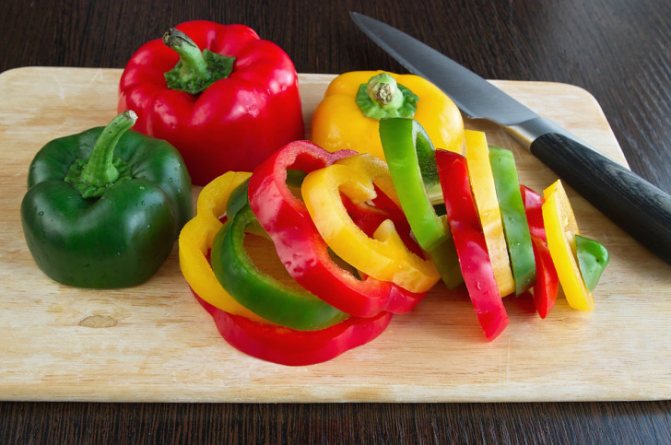
What is the best way to consume bell peppers during lactation?
In order to preserve all the beneficial substances of the vegetable, it should be consumed raw as a separate dish or in combination with salads or appetizers.
Bell peppers make an excellent vitamin juice. You can combine it with different vegetables: carrots, celery, cabbage, tomato and others.
For better absorption of vitamins, it is recommended to add a small amount of olive oil immediately before use.
Stewed bell peppers with olive oil and garlic is also a necessary dish in the diet of a nursing mother, allowing her to fight viruses and strengthen her immune system.
https://youtube.com/watch?v=2P2Psn2fDaA
Vegetables baked in the oven are also healthy and necessary for mothers during lactation. Add a small amount of bell pepper to them and enjoy an unforgettable tasty and very nutritious dish.
Recipe for a dish with pepper for nursing mothers
Everyone's favorite pepper, stuffed with meat and vegetables, is an excellent dish for a nursing mother.
In addition, you can eat vegetable stew, sauté, lecho, if they do not contain products that can cause a negative reaction in the baby.
Stuffing peppers is easy.
Components:
- minced meat - 450 g;
- carrot;
- rice (boiled) - 160 g;
- bulb;
- sour cream - 70 ml;
- pepper - 6-8 pcs.
Steps:
- Peel the vegetables, chop finely, sauté in oil.
- Add rice and minced meat to vegetables. Salt and sprinkle with pepper.
- Core the peppers, fill with the meat mixture, and place in a container.
- Mix sour cream with a small amount of water, pour over stuffed vegetables. Simmer for 40-45 minutes.

What about seasonings: red and black pepper during lactation
In addition to fresh pepper, pepper is widely used in cooking as a seasoning in the form of black, red and white. Most often this is the ground version. Is it suitable for a nursing mother?
When is it possible?
You can start seasoning the dish from the 2-3rd month of feeding. Use a test dose of the spice first. If there is no negative reaction, you can use it, but in small quantities.
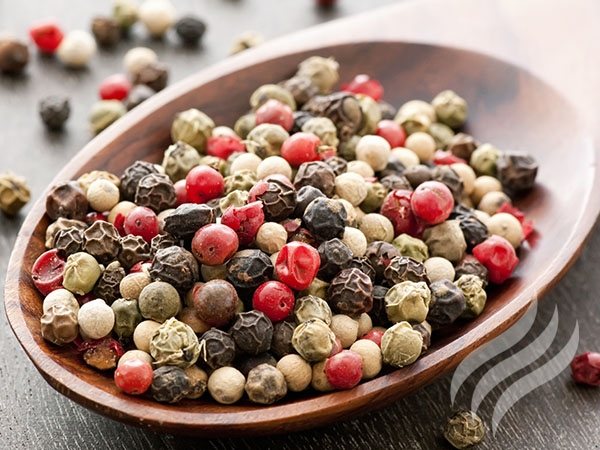
Benefit
In reasonable quantities, ground pepper not only enhances the taste of the dish, but also has a beneficial effect on the body. It contains carotene, calcium, pyroline, phosphorus, essential oils and other useful elements. Helps activate many processes in the body:
- Activates the production of acid in the stomach, which promotes better digestion of food.
- Prevents gas formation and stomach upset.
- Promotes weight loss and rapid breakdown of fats.
- Strengthens the immune system and has an antibacterial effect. Destroys pathogenic microbes and has an expectorant effect.
- Helps improve the circulatory system, cleans arteries from cholesterol, thins the blood.
- Has antioxidants that prevent cancer development.
- Promotes the absorption of other useful elements.
- Piperine, found in fruits, helps improve brain function and has a positive effect on the nervous system.
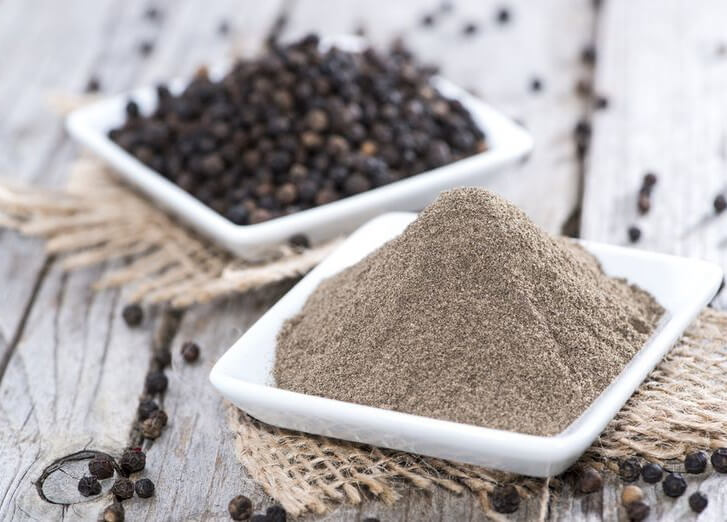
Contraindications
There are cases when pepper must be excluded from the diet:
- decreased hemoglobin level, anemia in the postpartum period;
- inflammatory processes of the bladder, kidneys;
- stomach diseases;
- intolerance of an individual nature.
How does it affect lactation?
If consumed in large quantities, pepper changes the taste of milk and makes it bitter. As a result, the baby will be nervous or even refuse the breast. May also cause irritation to the stomach lining.
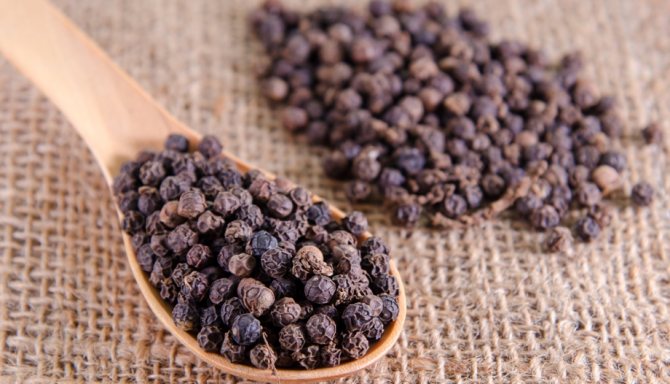
Impact on the child
Eating ground pepper can have a negative impact on your baby:
- Rarely, but can cause allergic reactions in a newborn in the form of redness of the skin, lacrimation, and runny nose.
- May cause indigestion, colic, and flatulence.
- Pepper can reduce the level of hemoglobin in the blood, which will negatively affect the baby.
Feeding is an exciting and unforgettable moment in the life of a mother and very important in the life of a baby. The protective functions of the body are laid, the digestive system develops, and the functioning of all organs is established. It is very important that the baby receives all the necessary vitamins and nutrients. But only from those products whose consumption will not harm him. A nursing mother should take full responsibility when choosing the food products that will make up her diet.
Cooking recipes
Remember that vegetables are only beneficial if they were grown naturally. Therefore, you need to buy this product in season and refuse the frozen vegetable mass that is offered in supermarkets. Prepare dishes from farm products. They can be purchased at any market. If you want to provide yourself with this vegetable in the winter, then you should freeze it yourself fresh or close the lecho. Below we will look at recipes for ready-made dishes.
Basics of proper cooking
Breastfeeding mothers are not recommended to eat at public catering establishments, so it is better to prepare food yourself. Vegetables are very delicate products and in order for them to retain their beneficial substances as much as possible, the stewing period should not exceed 15 minutes. In this case, the cooking process should be carried out over low heat. Don't add a lot of spices to your dishes. This can negatively affect the baby's digestive system.
Stuffed peppers with vegetable filling
For the filling, you can choose any vegetable crops: eggplant, zucchini or carrots. All vegetables should be thoroughly washed before cooking. Consider the recipe for stuffed peppers with mixed vegetables:
- The core is removed from the pepper.
- Zucchini, eggplant and carrots are twisted through a meat grinder.
- A little salt is added to the vegetable mass and the processed pepper is stuffed with it.
- Place the finished semi-finished products in a saucepan and add water so that it completely covers the products.
- Cook over low heat for 15 minutes.
The dish will turn out tender. You can put it on a plate using a tablespoon. By the way, vegetable broth can also be eaten.
Vegetable stew
Stewed peppers are a light dish with a vitamin complex. The cooking process will not take much time. First, decide on the additional ingredients that will be present in the stew and get started. You can buy: broccoli, cauliflower, lobbies, eggplants and zucchini. Consider the recipe for vegetable mix:
- Products need to be cut into cubes. Onions finely or in half rings.
- Place the vegetable mixture in a frying pan with high sides and simmer over low heat.
- Simmer for 15 minutes.
To avoid using vegetable oil, you can immediately pour a small amount of water over the vegetables. The finished dish should have a delicate sauce, so do not simmer it until the liquid has completely disappeared.
To know for sure whether your mother can eat bell pepper during lactation, you should consult your pediatrician or independently begin to introduce this product into your diet in small doses. Start only after your baby is 4 months old. If the baby reacts positively to this vegetable, then it can be consumed almost every day, but in moderate dosage.
